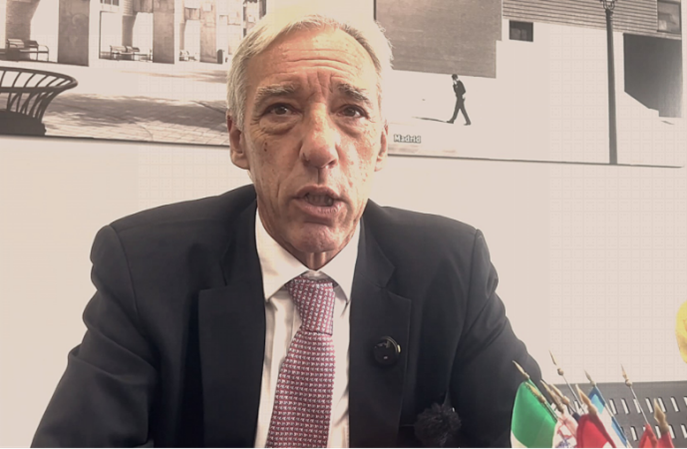The European Union’s Special Representative for the Sahel, Joao Gomes Cravinho, voiced concerns about Burkina Faso’s recent military alignment with Russia in its fight against terrorism, characterizing the move as “not a wise choice” during a visit to Liberia. While acknowledging Burkina Faso’s sovereign right to make such decisions, Cravinho emphasized the EU’s preference for engagement with civilian-led governments and its ongoing support for development, humanitarian aid, and civilian security sector reforms in the Sahel region. The EU has refrained from directly collaborating with the military governments in Mali and Burkina Faso due to their alliances with Russia, focusing instead on civilian security initiatives such as police training, judicial capacity building, and support for rule-of-law agencies.
Cravinho highlighted the EU’s perspective that a purely military approach to counter-terrorism has proven ineffective in the Sahel, as evidenced by the worsening security situation in the region. He pointed out the flawed assumption of Sahelian military leaders that force alone could resolve the complex issue of terrorism. Despite the EU’s non-engagement with Russian-backed military operations, the Union remains committed to supporting civilian-led initiatives aimed at fostering stability and development. This includes projects such as the Ouagadougou and Abidjan corridor initiative, which aims to bolster local economies and create conditions for improved livelihoods in the face of escalating insecurity.
Cravinho’s visit to Liberia underscored the interconnectedness of security challenges in West Africa, particularly the spillover effects of the Sahel crisis. He warned of the risks posed by migration from the Sahel to neighboring countries like Liberia, including potential threats to peace and security. Discussions with Liberian officials and civil society focused on concerns about porous borders, trafficking, and undocumented migration, fueled by the instability in Burkina Faso and other Sahelian countries. The influx of Burkinabé nationals, though largely driven by climate change, economic hardship, and insecurity, has raised concerns among Liberians about the potential infiltration of terrorist elements.
Cravinho addressed these concerns, acknowledging the legitimate anxieties of Liberians while clarifying that there is currently no evidence to suggest that terrorists have crossed into Liberia with the migrants. He emphasized the EU’s commitment to supporting Liberia’s peace and development through enhanced collaboration, including capacity building for border security, support for the judiciary, and efforts to promote economic resilience. This assistance, according to Cravinho, is guided by the principle of respectful partnership and is tailored to the specific needs and requests of the Liberian government.
The Sahel region is grappling with significant political and security challenges, marked by the weakening of democratic institutions and the rise of military regimes. While some countries in the region have opted for military partnerships with Russia, the EU maintains its belief that sustainable peace hinges on civilian-led governance, socioeconomic development, and international cooperation. Cravinho’s visit to Liberia underscored the EU’s commitment to fostering stability and security in West Africa through a comprehensive approach that addresses the root causes of conflict and supports civilian-led initiatives.
The EU’s strategy in the Sahel focuses on addressing the complex interplay of factors contributing to instability, including poverty, climate change, weak governance, and violent extremism. By prioritizing civilian-led initiatives, development assistance, and humanitarian aid, the EU seeks to strengthen resilience, promote inclusive governance, and foster sustainable peace. The EU’s continued engagement with Liberia, despite its geographic distance from the Sahel, underscores the interconnectedness of security challenges in West Africa and the importance of regional cooperation in addressing them. Cravinho’s visit also highlighted the importance of addressing the anxieties and concerns of neighboring countries regarding the potential spillover effects of the Sahel crisis, including migration and cross-border security threats.


